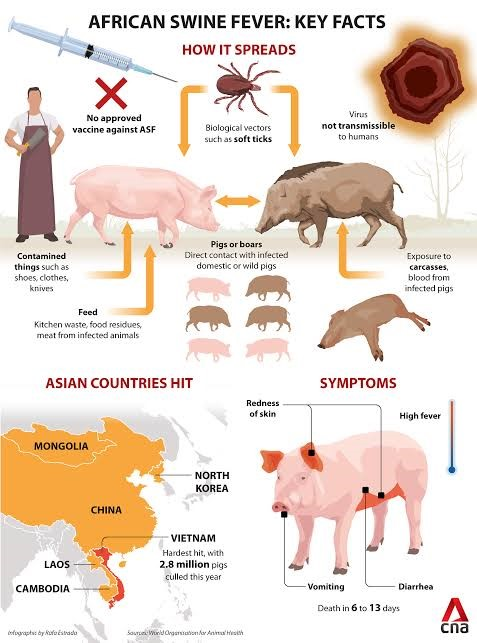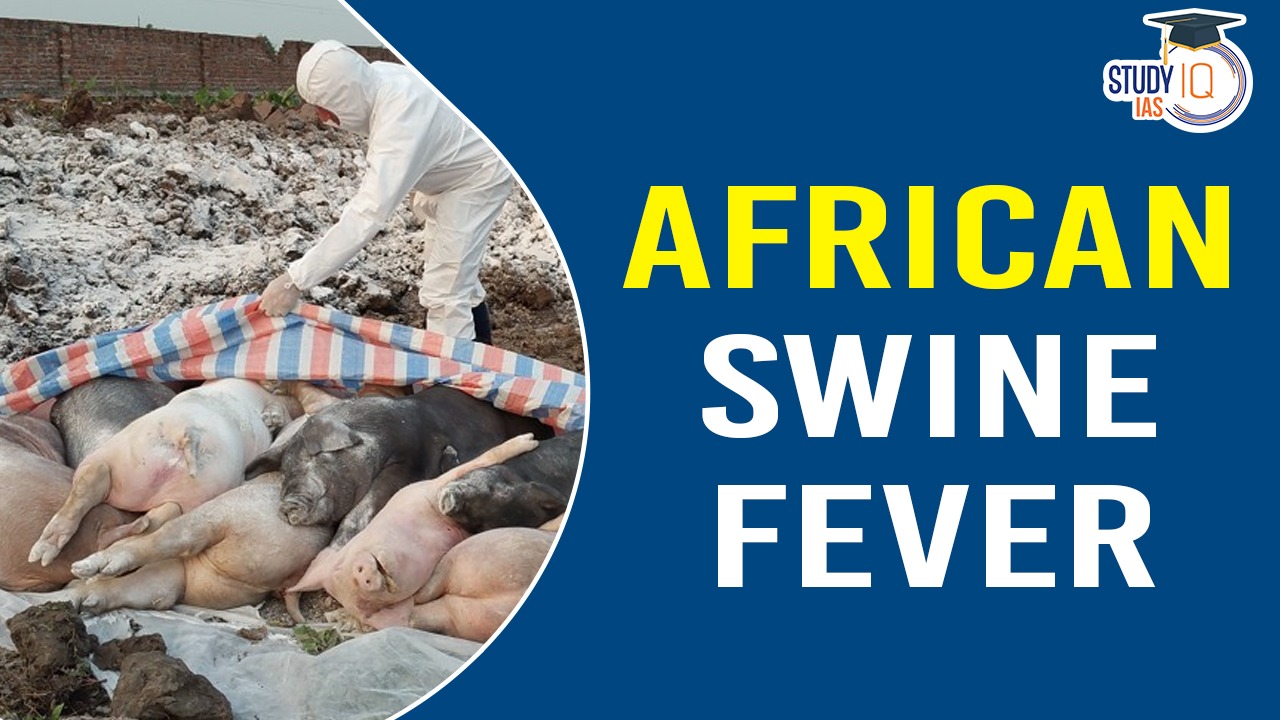Table of Contents
Context: A recent outbreak of African Swine Fever has been reported in Thrissur, Kerala.
African Swine Fever (ASF)
- African Swine Fever is a highly contagious viral disease affecting both domestic and wild pigs.
- The causative agent of African Swine Fever is a large, enveloped, double-stranded DNA virus, classified as the only member of the genus Asfivirus within the Asfarviridae family.
- The virus infects the macrophages(immune system cells) in lymph nodes and major organs (such as liver, kidney, etc.)

Symptoms of African Swine Fever
- High fever, loss of appetite, weakness.
- Reddened or darkened skin, particularly ears and snout.
- Diarrhea, vomiting, coughing, difficulty breathing.
- Abortions, stillbirths, weak piglets.
Transmission
- Direct contact with infected animals
- Indirect contact through ingestion of products from infected animals, contact with contaminated clothing, vehicles or equipment
- Bites by infectious soft ticks (where present)
Other Related Information for African Swine Fever
- The virus can survive for extended periods in pork and pork products.
- African Swine Fever is endemic to sub-Saharan Africa but has spread to other regions, including Asia and Europe.
- This virus is harmless to humans, pork and pork products from infected pigs are safe for human consumption.
- There is no cure or precaution available for the infection yet.
- Controlling the spread of African Swine Fever primarily involves culling the infected animals.
- No cure or vaccine exists, so prevention is crucial.
- ASF has never been found in the United States and many countries are working hard to keep it out.
- Biosecurity measures on farms are essential to prevent the spread.
- Properly cooked pork products are safe to eat.


 AI and its Regulation in India, Limitati...
AI and its Regulation in India, Limitati...
 Tuberculosis (TB), Symptoms, Causes and ...
Tuberculosis (TB), Symptoms, Causes and ...
 Silicon Photonics Enables Low-power AI A...
Silicon Photonics Enables Low-power AI A...





















